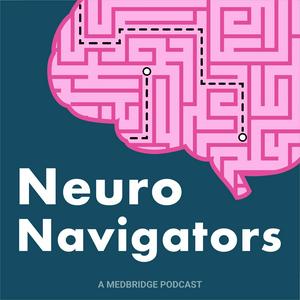Leading neurorehabilitation expert Julie Hershberg, PT, DPT, NCS, joins host J.J. Mowder-Tinney, PT, PhD, to dismantle the persistent myths and "weird" clinician behaviors that often hinder the treatment of functional neurological disorder (FND). Together, they bridge the gap between outdated assumptions and current neuroscience, exploring the predictive brain model and the high prevalence of comorbid conditions. You will learn why practitioners should shift from a diagnosis of exclusion to a positive clinical framework that prioritizes building trust and addressing underlying sensory processing difficulties. You will also gain actionable strategies to treat FND with the same clinical rigor and confidence as any other neurologic condition, ensuring your patients feel truly seen and supported.
Learning Objectives
Analyze the evidence around functional neurological disorder (FND), including common myths, neurobiological mechanisms, and diagnostic clarity
Apply evidence-based, practical strategies to actionably address assessment and treatment planning for individuals with FND, including sensory, autonomic, and psychosocial factors
Solve patient case scenarios involving FND by using whole-person, trust-building approaches to guide interdisciplinary treatment and improve functional outcomes
Timestamps
(00:00:00) Welcome
(00:00:05) Introduction and clinical training gaps
(00:01:30) Guest background and professional evolution
(00:03:37) Overcoming the stigma of "weird" therapy
(00:08:30) Debunking common FND myths
(00:10:10) Clinical diagnosis and neurological evidence
(00:13:27) Reviewing current treatment research
(00:16:30) Screening for comorbid conditions
(00:18:10) Autonomic nervous system considerations
(00:20:09) Integrating sensory and lifestyle factors
(00:21:45) Patient triage and readiness for change
(00:26:58) Acceptance of the brain-based model
(00:29:04) Assessment priorities and heavy hitters
(00:32:37) Practical sensory and autonomic interventions
(00:35:45) Establishing radical trust with patients
(00:37:46) Family education and environmental influence
(00:39:55) Promoting patient advocacy and autonomy
(00:46:10) Top three actionable takeaways
(00:47:04) Case studies in holistic recovery
(00:53:15) Creative adaptations in functional therapy
Neuro Navigators is brought to you by Medbridge. If you’d like to earn continuing education credit for listening to this episode and access bonus takeaway handouts, log in to your Medbridge account and navigate to the course where you’ll find accreditation details. If applicable, complete the post-course assessment and survey to be eligible for credit. The takeaway handout on Medbridge gives you the key points mentioned in this episode, along with additional resources you can implement into your practice right away.
To hear more episodes of Neuro Naviagators, visit https://www.medbridge.com/neuro-navigators
If you’d like to subscribe to Medbridge, visit https://www.medbridge.com/pricing/
IG: https://www.instagram.com/medbridgeteam/


